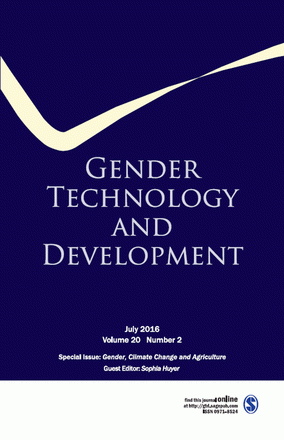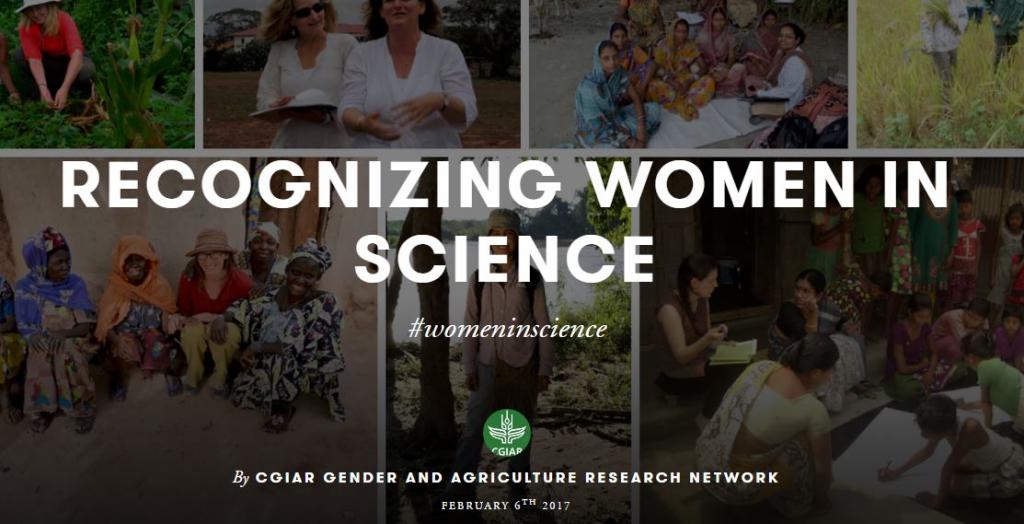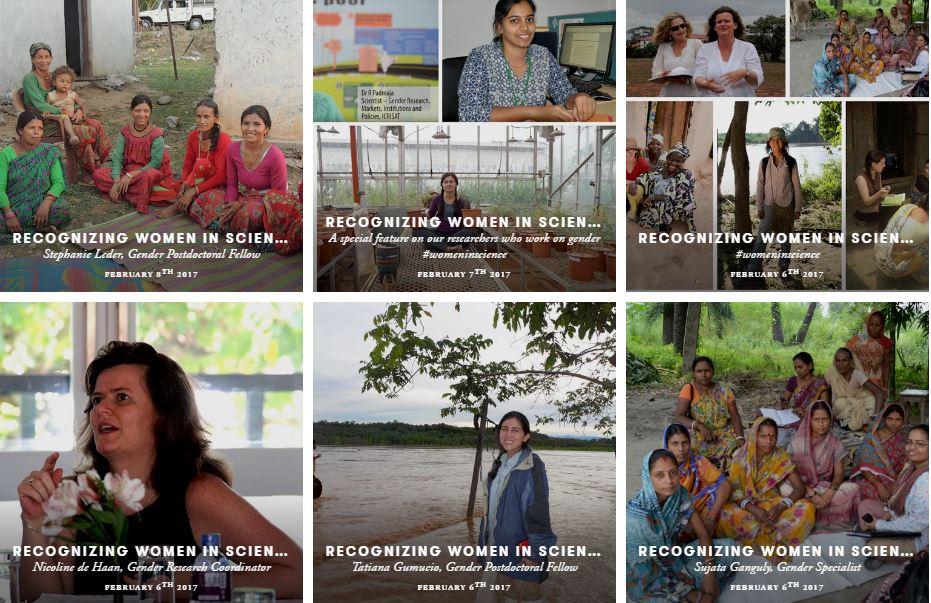Celebrating women scientists on the International Day of Women and Girls in Science

We're celebrating women in science through the International Day of Women and Girls in Science. Recognizing the powerful role of women in scientific inquiry promotes gender inclusion in research and moves the international community one step closer to achieving development goals.
Women are making notable gains in the sciences. In most developing areas of the world, the percentage of women graduating with a science degree is on the rise. Across much of Latin America and Arab countries, the share of women earning science degrees is near parity with men. In many South Asian countries - including Brunei Darussalam, Philippines, Malaysia, and Myanmar – the share of women earning science degrees actually outpaces men. In South Africa, 52 percent of those employed by a biotechnology-related company were women.
There is, however, room for improvement. For instance, while there are regional exceptions, women remain underrepresented in the fields of engineering, manufacturing, construction, and computer science. Additionally, while more women are earning agriculture degrees, there remains a lack of women employed in agricultural extension services. A 2010 study conducted by the World Bank and the International Food Policy Research Institute (IFPRI) found that, in India, there were no female extension workers and only 10 percent of veterinary assistants were women. In Ghana, 15 percent of surveyed extension agents were women and, in Ethiopia, the percentage of female extension staff ranged from four to 16 percent, depending on the area.
According to the United Nations Educational, Scientific and Cultural Organization (UNESCO), less than 30 percent of researchers worldwide are women. Across a sample of 47 countries, women made up an average of 22 percent of agricultural researchers. Gender inclusive research strategies will provide a diversity of perspective that will help meet development goals, like those put forth by the 2030 Agenda for Sustainable Development. In recognition of the need to encourage girls and women to participate in the sciences, the United Nations has declared February 11 as the International Day of Women and Girls in Science.
Notable celebrations of the day include the CGIAR Gender and Agriculture Research Network’s call to highlight research on gender in their #womeninscience campaign. In addition to social media, the campaign website features scientists from across the CGIAR network, asking them questions about motivations, challenges, and advice for potential gender researchers.

In addition to encouraging and supporting women researchers, gender-inclusive research and collecting sex-disaggregated data is also essential for addressing the different needs of male and female farmers. CCAF’s Catherine Mungai conducted one such example of gender-inclusive research. Mungai, a Climate Impact Research Capacity and Leadership Enhancement (CIRCLE) fellow, awarded through the International Livestock Research Institute (ILRI), examined the intersectionality between gender, age, ethnicity, education, and marital status on the adoption of climate-smart agriculture (CSA) technology and practices. Her paper on the topic won best paper award at the 2016 Symposium on Climate Change Adaptation in Africa.
Policy can also play an important role in advancing a gender-inclusive knowledge society. In addition to free education, Nepalese education policy requires the presence of women teachers and the removal of gender disparity. Nepal’s reformed agriculture policy better highlights the work of women in agriculture production. Research that documents gendered policy measures also provides a better understanding of the environment that could support or inhibit advancements by women farmers.
While increasing the number of women involved in the sciences, and providing them with the support they need to lead research teams, will benefit women everywhere, it will particularly give a voice to the most marginalized women. Helping to celebrate the International Day of Women and Girls in Science helps support women around the world as they continue to push for a place at the research, policy, and corporate table.
The CGIAR Gender and Agriculture Research Network’s #womeninscience campaign. Click here to read the story
Click here to read all stories of #womeninscience
Read more
- CCAFS research: Gender and Social Inclusion flagship
- CGIAR research: Gender and Agriculture
- For more content, follow #womeninscience on Twitter and Facebook
Kathlee Freeman is Communications Assistant at CCAFS Gender and Social Inclusion Flagship.





